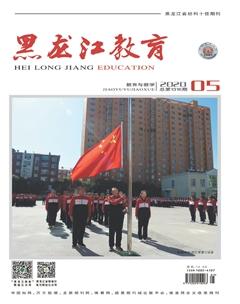Unit 6 Shopping Read and write 教学设计与评析
赵婧 马英春
教學内容:PEP英语四年级下册Unit6 Shopping
教材分析:
【What】本部分语篇是一则促销广告。主题为向顾客推销特价商品。在文本中,作者罗列了主推的商品——眼镜、手套,以及其他商品:围巾、雨伞等。同时,内容也涉及到商品折后价格、颜色和质量等特性的介绍。
【Why】文本以促销广告的形式,告知顾客服装店的营销活动,以便于能够更加吸引顾客的注意,帮助服装店卖出更多的商品;使学生逐步建立理性消费的意识。
【How】语篇段落为并列结构,共40词。通过图文结合的方式,帮助学生理解文本内容。语言简短有力,读者一目了然,主题清晰明确,整体层次分明:罗列促销商品——强调商品价格——形容商品特性——号召性语言。文本采用第一人称和第二人称的形式展开,拉近了销售者和顾客的距离。
学情分析:
学生在第五单元已经接触了服装类话题,并且因为和日常生活紧密相关,学生比较感兴趣。但是因为四年级学生社会经验比较少,还没有形成正确的消费观念,所以应该正确引导。
经过一年的训练,学生已经基本具备阅读获取细节信息,筛选信息的阅读能力。本课时学生已具有的语言基础:在听说层面上掌握了单词sunglasses, gloves, cheap, scarf, umbrella, pretty。
本课的文本材料适合训练提高学生进一步归纳信息的阅读能力,以及进一步帮助学生形成理性思维,本课时需要学生掌握的新知识有:单词sale, more, us。
教学目标:
1.在图片的帮助下,预测促销海报中商品名称和卖点,感知和理解文本表达的促销信息,内化sale的意义;
2.获取梳理商品名称和卖点,归纳整理促销广告中商品的信息,内化more, us的意义;
3.正确描述海报信息,播报海报;分析、评价促销广告的宣传方式;
4.借助该文语言简洁、有力的特点,结合生活实际,进行创作型的仿写活动。
教学重、难点:
正确书写运用本单元及本课时的核心语言、词汇、提供的语言材料,结合生活实际,进行适当的创作型的仿写活动。
教学过程:
环节1—学习理解活动
第一步,课前热身。
Sing a song
Whats the song about?
Do you like shopping?
第二步,引出对要学习的文本内容的猜测。
1.围绕Sarah和Mum购物的主题,创设情境,引出促销活动海报;
T: Great! Many people like shopping.Look! Sarah and Mum are shopping now.There are many shops here.Look at the Sunny shop.On the wall, they found a poster.
2.激活促销活动海报中关键词汇sale的含义;
T:On the poster, Sarah and mum found a big word.What is it?
T:Yes.Sale! Whats sale? Lets watch a short video.
3.根据情境,引导学生提出问题,并预测促销广告内容。
T:So, this is a sale poster.Whats on the sale poster? Can you guess?
T:We can also look from the Sunny Shops window.Lets guess, whats on the poster?
How do you like the sunglasses/gloves…? Are they cool/pretty?
4.通过快速浏览,获取促销商品名称;
T:This time, read the sale poster and answer the question.What goods are on the poster?
Ss:Sunglasses, gloves, scarves, umbrellas.
第三步,概括、梳理、整合信息,形成知识结构。
1.学生自主阅读,完成商品、卖点的表格;
T:Now, read the sale poster again and find in details.Then you can finish the blanks by yourselves.
2.检查学生阅读结果和对文本的理解;
T:Children, do you have any questions about the blanks? Can I ask you some questions?
(1) Are the sunglasses cheap?
(2) How much are the brown gloves?
(3) Are the umbrellas too expensive?
3.检查学生对新词语、句意的理解。
T:Look at the scarves.What colours can you see?
T:What does the poster write? Red, yellow, brown …, the other words, we can say:more.
T:At last, there is a sentence:Come and see us today! We and us, whats the difference? Can you find?
T:So, we can say like this:My English teacher likes us very much.We like our teachers.
环节2—应用实践活动
第四步,实践内化语言。
1.播报广告。
1)听音、模仿朗读;2)播报广告;
T:This time, lets listen and imitate.
T:As we know, the sale poster is on the wall, we want to more people to come here.
T:We can broadcast the sale poster.Practice by yourself first.Who wants to have a try?
T:Is it good? What do you think?
2.向家人或朋友介绍商店促销活动。
T:The Sunny Shop is on sale.Its good news.Sarah wants to tell her friends.Please help her.Maybe you can say like this:
Today all ___ and ___ are ____ yuan.They are ____.
The Sunny Shop has ____ ____ ____, too---____,____, ____ and ____.
___ are ___, too.The Sunny Shop has many___ ___ .
T:When you see the sale poster, what will you do?
环节3—迁移创新活动
第五步,为商店618促销活动撰写服装促销海报。
T:As we know, 618 is coming, please write a sale poster for the Pretty Shop and Sunny Shop.
T:We can know the information from the pictures.Whats on the pictures? Can you tell us?
第六步,基于主题与内容进行分析,表达个人观点;
T:Now write the posters, you can choose anyone.Then we can share with your classmates.
T:Children, now you know the sale posters very well.Do you want to buy the goods in the shops? What do you want to buy? What do you think?
Homework:
1.Listen and read the text.
2.Finish your own sale poster.
反思:
本课时为PEP英语四年级下册Unit6 Shopping中的读写课时。第六单元的话题为购物,前两课时Talk和Learn讲述的是John和妈妈,Sarah和妈妈去购物的情境,虽然内容不同,但都是购买的情境,而Read and write则呈现的是卖的情境。
读写课时分为两大部分:读、写。读是阅读一则促销海报,在文本中,作者罗列了主推的商品——眼镜、手套,以及其他商品:围巾、雨伞等。同时,内容也涉及到商品折后价格、颜色和质量等特性的介绍。文本语言简短有力,读者一目了然,主题清晰明确,整体层次分明:罗列促销商品——强调商品价格——形容商品特性——号召性语言。文本采用第一人称和第二人称的形式展开,拉近了销售者和顾客的距离。写是用学习到的单词、句子等描述商品的特性,写一则促销海报。
在课前热身中,以歌曲
当然,在本课时的教学设计中还存在一些问题。在引导学生理解sale含义时,没有做到直观有效,可以尝试加入实际生活中的sale情境,贴近学生的经验,易于学生理解。在输出环节,向朋友或家人介绍促销活动中,本意是为学生搭建语言支架,所以选择了填空活动,但是在实际课堂教学中,发现学生反而被填空限制了思维,所以,在接下来的授课中,可以把此环节改为学生直接陈述促销广告内容,锻炼学生用英语总结的能力。
每节课都是在实践、反思、再实践、再反思的过程中逐步完善起来的,期待下次能够呈现出更加完善的设计。
编辑/魏继军

